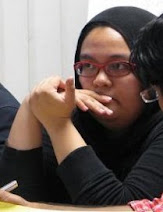A Closer Look at the Theme of Being “Unhomely” in the Works of Wong Phui Nam- An Islamic Perspective
Among other things, the poetry of Wong Phui Nam has been found to be appealing to his critics and admirers because of its unique take on the concept of “home”- in that his poems display a sense of “unhomeliness”. Take this verse from the Nocturnes and Bagatelles collection for instance:
How long must I bend
in this uncertainty
I in my thought like flowers
toward every uncertain light,
how long must I labour
working from every bud
which folds within its calyx my emptiness
toward each spoor of rain
that I in my separateness
should move toward
full flowering of the human
that my words may quicken
with the grief and laughter
of every alien heart.
in this uncertainty
I in my thought like flowers
toward every uncertain light,
how long must I labour
working from every bud
which folds within its calyx my emptiness
toward each spoor of rain
that I in my separateness
should move toward
full flowering of the human
that my words may quicken
with the grief and laughter
of every alien heart.
For a reader who is familiar with Phui Nam’s thoughts on the state and position he takes with regards to Malaysian literature in English, this verse would be taken to illustrate Phui Nam’s discontent when it comes to how both the language he chooses to write in (a variety of Malaysian English he terms as Educated Malaysian English (EMS)) and his racial status are very much marginalized by the respective national policies regarding them. This entry provides an Islamic perspective on the theme of “unhomeliness” in Wong Pui Nam’s works, with particular attention paid to the collection found in Nocturnes and Bagatelles.
The Islamic perspective we would offer with regards to this issue is as follows; there is clearly a general feeling of discontentment among Malaysian writers who either write primarily or exclusively in English, stemming from how these writers are not given the due recognition which they deserve. This is clearly an aspect of the national language policies which is lacking. The term “Malaysian literature” needs to be broadened to include literary works in other languages other than the Malay language. The Islamic approach would be to celebrate the diversity we have in Malaysian literature, as opposed to exclude literature in English and other languages besides Malay. For the sake of promoting the growth of Malaysian literature in general, the term “Malaysian literature itself needs to be more inclusive.
8:00 AM | | 1 Comments
A Closer Look at the Status of Malaysian Literature Written in English- an Islamic Perspective
The question of how best to achieve balance and to appease all the races in a country like post-Independence Malaysia is still an issue that can spark debate. Without getting into this debate too much, this entry attempts to give the readers of this blog a brief and concise take on the issue of the exclusivity which our national language policies give to the Malay Language. Just to be clear, the writers on this site do not dispute the status given to the Malay language as the official national language of Malaysia. What we attempt to afford our readers is what(in our view) is a more Islamic standpoint on the question of whether Malaysian literature in other languages besides Malay (with attention given to Malaysian literature written in English) should be recognized as part of the corpus we call Malaysian literature.
Wong Phui Nam feels a further sense of displacement from inherent aspects of the very language with which he writes- mostly stemming from the fact that he is a Peranakan who is educated in English. He was once quoted to say this about writing in English in as a Peranakan living in Malaysia, “Even for a writer in Malay, whether he is a Malay or a non-Malay, he has to reinvent the language. All the more so for Indians and Chinese. For a Chinese, when we write in Chinese, we cannot pretend that nothing has happened and try to write Tang poetry. So for us to write in English, we are exiled three times, culturally and spiritually from China, culturally from the indigenous Malay culture and then writing in English. We cannot claim that it is a tradition. I would say we have appropriated the language. So, in a way, it is a much more interesting medium to work with, to work with the language against the tradition.”
What we hope to illustrate to the readers of this blog by the above explanation on the sense of displacement detected in Phui Nam’s poetry is this; that being a writer who writes in English in Malaysia can be a very disheartening thing. Phui Nam is not alone in this. This sense of displacement, and the feeling that their writing is marginalized by the Malaysian language policies is a sentiment that has been expressed by several other writers of Malaysian literature in English; K. S. Maniam, Ee Tiang Hong and Shirley Lim, to name a few- Ee and Lim in fact left the country, citing the many constraints involved with writing as a cause for their decision to leave the country.
Only literature written in Malay is recognized as Malaysian literature. While on the surface, it may seem petty for one to bicker about the simple of recognition, it is important for us to understand that recognition is only the starting point of the debate. The need for the national language policy to recognize Malaysian literature in English stems from the fact that recognition brings about greater access of the literature to the people, and also brings about the possibility for Malaysian literary works in other languages to be recognized for their level of excellence. In the status quo, only literary works in the Malay language are up for literary awards which are sanctioned by the government.
The Islamic perspective we can provide with regards to this is simply this; while Malaysia may not be ready to put the other main spoken languages in Malaysia on par with Malay, it is high time that we recognize the literatures written in these languages as Malaysian. We on this blog do not feel that these two terms are necessarily mutually exclusive- the Malay language can still be recognized as the official national language while literature written in English, Tamil and Cantonese are recognized as Malaysian literature.
7:55 AM | | 0 Comments
A Seasoned Writer’s Discontent
In the year 2009, at an MPH bookstore event meant to promote the Singaporean Writers Festival, Wong Phui Nam quipped that “Malaysian English literature is fast becoming an adjunct of Singaporean writing”, shocking his audience at said event, and (judging by several posts on the internet) angering many commentators of Malaysian literature. He also lamented that many writers have migrated to Singapore, and that there is a lack of younger, fresh talent in the Malaysian writing scene. Whether his observations hold water is still debatable of course (the online debates being a testament of this), but what can be said about Phui Nam is this- the man is not afraid to speak his mind when it comes to this subject.
At the risk of sounding like we are straddling the fence, we on this site are of the humble opinion that Phui Nam had reasonable cause to make the statements he made. At the same time however, we agree with the general sentiment of dissatisfaction expressed in the online posts with regards to Phui Nam’s dark prophecy about the future of Malaysian literature in English left at the hands of the current generation. While clearly there is a lot to be desired currently, to say that the prospects for Malaysian literature in English is so bleak that it would cease to exist as we know it, and would instead become an adjunct of Singaporean literature is uncalled for.
Yet Phui Nam being Phui Nam- if our lay man’s observation on his person after seeing him read and talk at a handful of conferences and readings count for anything- perhaps he knew exactly what he was getting into when he made this controversial statement. Perhaps his disgruntled old man’s speech was meant to provoke, and challenge the current generation of writers to more actively write- and write better, at that. Perhaps, like the writer Amir Muhammad puts it in his comment on Sharon Bakar’s blog, Uncle Phui Nam was just being “naughty”.
4:25 AM | | 0 Comments
Why Malaysian Literature? ( Wong Phui Nam)
Wong Phui Nam is one of the most prominent writers we have today. He received his early education at two Chinese schools in Kuala Lumpur's Chinatown. He later joined the Batu Road School and from there went to the Victoria Institute in 1949. Even at an early stage, Phui Nam displayed a propensity for writing. However, he was conflicted with regards to the language he chooses as the main medium for his writing.
This blog will provide a brief and concise view of this particular aspect of Phui Nam’s writing persona- the writer who feels a sense of displacement from the place he calls home.
6:30 PM | | 0 Comments
:: The Literature of Malaysia ::
- Refers to a collection of literary works produced in the Malay peninsula until 1963 and in Malaysia thereafter
- Typically written in any of the country's three main languages: Malay, English and Chinese
- It portrays various aspects of Malaysian life and comprises an important part of the culture of Malaysia
- Examples of Malaysia Literature in English: Monsoon History and The Pencil
7:41 AM | | 0 Comments
Subscribe to:
Posts (Atom)
Footer Widget #1
Powered by Blogger.
Blog Archive
About Me

- imansakinahnabila
- We are the proud fans of the works of the great Malaysian poet, Wong Pui Nam.
Amigos
Archives
BloggerStop.Net
Search!
Our Assignments~
- Home
- Our Ideal Classroom
- Reflections on The Ideal Classroom
- First Assignment :Summary of "Language Learning Be...
- Reflections on Summary of an Article
- Second Assignment Corpus Linguistics : An Experie...
- Reflections on The Second Assignment (Corpus Lingu...
- Third Assignment ;Concordancer
- Reflection on Concordancer
- :: Lesson Plan ::
- Reflections on Our Blog
About Me

My name is Nabilah Lokmal.
:: aLL aBoUT Me ::

Muizatul iman...a name given by my mother.I was born on 24th November 1987 and grown up in Johor.I am a student in a well-known university called IIUM.I'm majoring in Arabic language and minoring in English language.Insyaallah this semester is my final semester in IIUM.
Me, Myself and I

My name is Nur Sakinah, i am taking BENL and majoring in Combination.i am keen to learn new things from this course as i am an enthusiast in every positive thing in this world. As simple as that.








